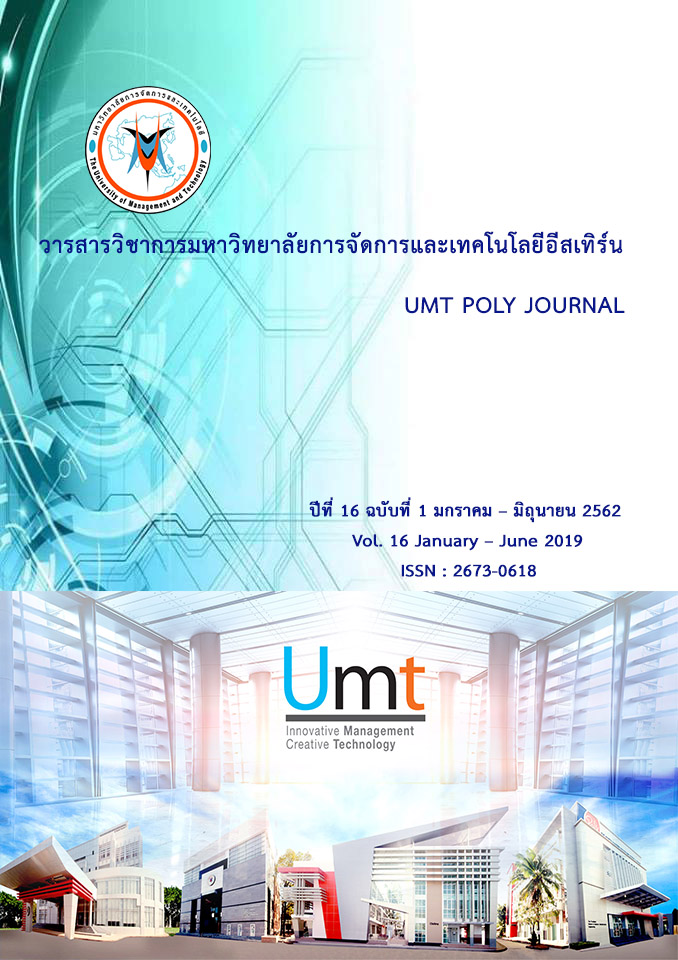A Development of Housing Estate Business Model Based on Cultural Concept: A Case Study of Nakhon Ratchasima Province
คำสำคัญ:
housing estate business, management system, cultural based conceptบทคัดย่อ
The objectives of this study were to investigatea background, current situation, and problems and develop a model of housing estate business management based on cultural concept: a case study of Nakhon- Ratchasima province. Mix method was employed consists of quantitative research and qualitative research. Research respondents. With regarding qualitative section, semi structured questionnaire as tools and guide for gathering data by using in depth interview method and focus group approach. The sample group of this section was composed of 11 key information groups, 5 casual information groups. Content analysis was employed for data analysis of qualitative research. Moreover, quantitative research was using to assure the housing estate business effect regarding customer satisfaction. A questionnaire was created to collect data with 250respondents who are housing estate business’ customers. Frequency, percentage, mean, and standard deviation value were employed to analyze quantitative data. The results represented that housing estate business owner focused on transportation factor, because Nakhon Ratchasima province is a center for transportation (i.e., car and railway train) of Thailand’s northeast region. For current situation and the problems of housing estate business management of the culture based concept, the subject concerning architecture factor, the attitude toward from finding reasonable land price, suitable location for building the living house.Subsequently, the owner should focus in real estate law and regulation clearly, design linking traditional cultureand local atmosphere, plan facility and safety systems, and concentrate in environmental management system particularly. Moreover, to increase housing business’ customer satisfaction, the housing estate business owner/manager have to emphasis in ethical aspect and after sale and service dimension to achieve customer satisfaction and increase firm’s performance.
References
Hannula, E.-L. (2012).Going Green: A Handbook of Sustainable Housing Practices in Developing Countries; UN-HABITAT:Nairobi, Kenya, p. 124.
Khumpaisal, S. (2015). An examination of economic risks perception of Thai real estate developers.
National Housing Authority. (2013). Data Collection Survey on Housing Sector in Thailand.
Majaroen, P., and Banjaoran, V. (2013). Factors influencing consumers decision on buying real estate in Khon Kaen. UBU Engineering Journal 6(2). 22-34.
Santos, J. R. A. (1999). Cronbach’s alpha: A tool for assessing the reliability of scales. Journal of extension 37(2): 1-5.
Sweeney, A., Clarke, N., & Higgs, M. (2017). A Qualitative Analysis of Shared Leadership in Organisational Teams. Paper presented at the Irish Academy of Management Annual Conference 2017, Queens University Belfast.
Suenderman, T. (2005). Energy Efficiency in Affordable Low-to-Medium-Income Urban Housing of the National Housing Authority of Thailand. Deutsche Gesellschaft für Internationale Zusammenarbeit (GIZ): Bonn, Germany.
Vongchavalitkul, S. (2015). Statistical model for monthly rental apartment in Nakhon Ratchasima Province, Thailand. The Business and Management Review, 6(4), 37-40.



